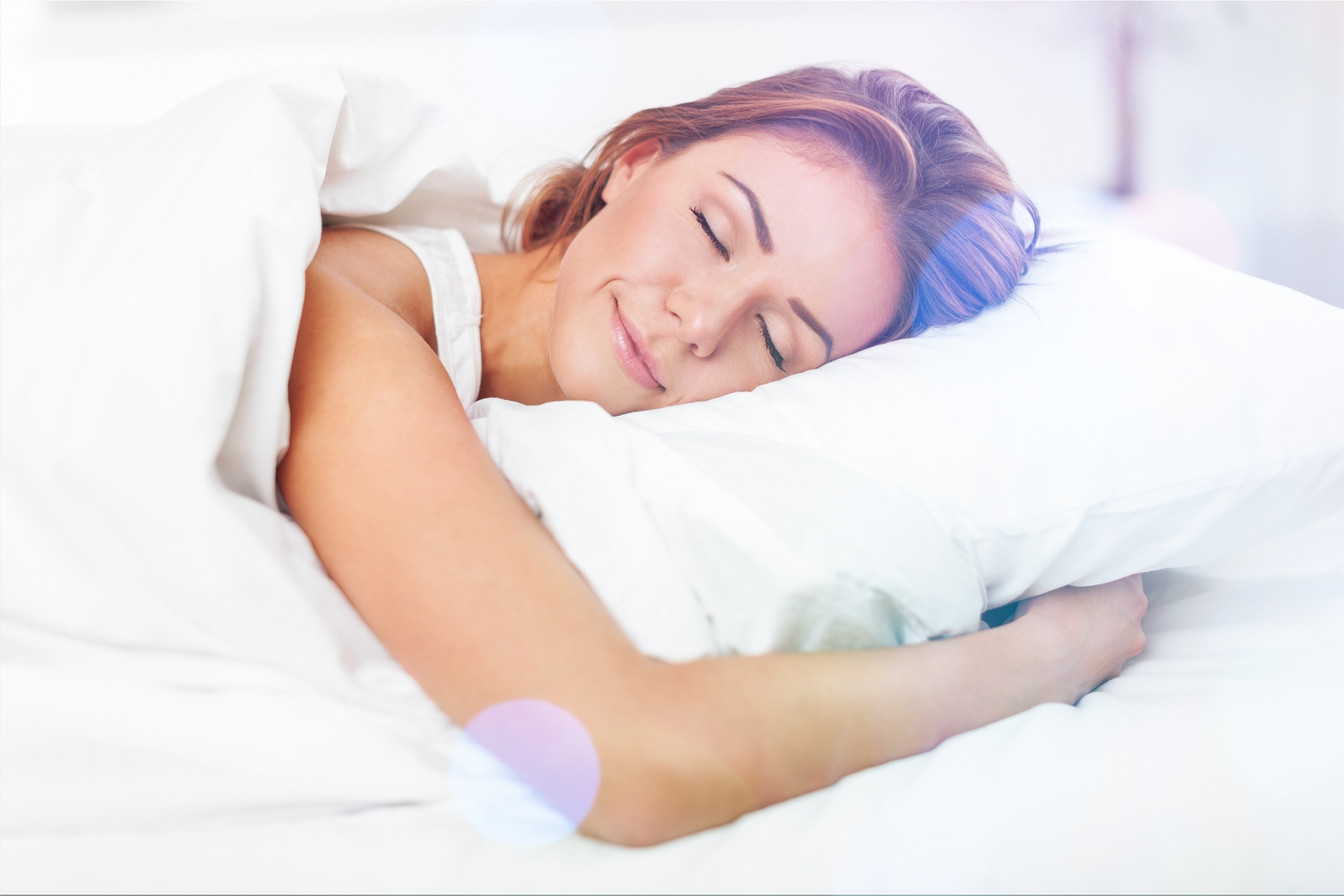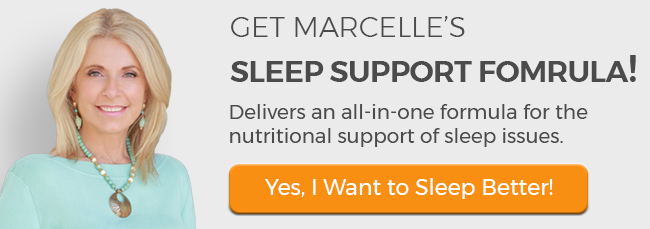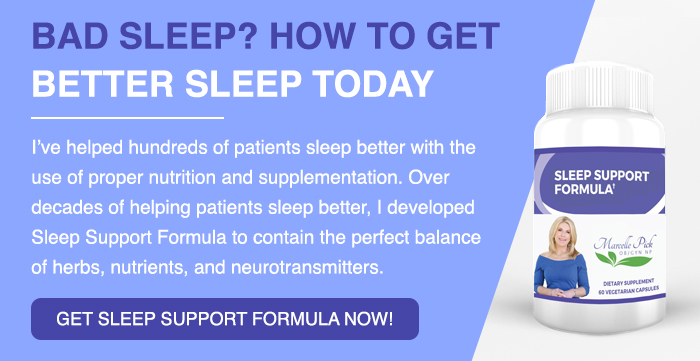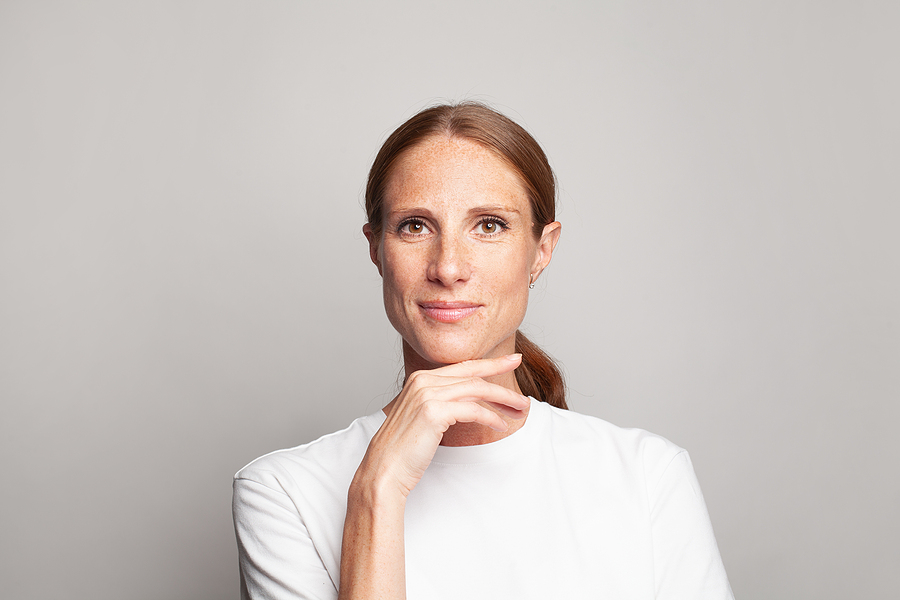Have you ever been stuck in a relationship that just isn’t working? It can seem like an endless loop of dysfunction. You get frustrated, your partner responds with frustration, and on and on. The relationship between loss of sleep and hormones is a lot like that, which can make figuring out how to heal incredibly frustrating. But just like with a relationship fraught with misunderstanding, if you don’t take the time to examine what’s really going on, there’s no hope of fixing the problem.
Sleep and Hormones: “It’s Complicated”
The relationship between sleep and hormones is complex and often confusing. Part of the reason is that there are so many different hormones carrying messages through your body — and they are all connected to one another. That means if one is not at an optimal level, it may skew others — and several are impacted by how much sleep you get.
At the same time, hormone levels (particularly those that are too high or too low) can directly affect your ability to get to sleep – or stay asleep – at night.
Explaining the job of all of your hormones and how they function would take far more pages than you want to read here — but I can get a good start. Let’s talk about a few that are most impacted by lack of sleep, and how they can also make sleep elusive.
Sex Hormones
When I talk about hormones, many women automatically assume I mean estrogen, progesterone or testosterone. After all, these are the hormones we hear about so often in the media – especially as we draw closer to the typical age of menopause. And they are important to consider when it comes to sleep. If your sex hormones are out of balance, you are very likely to experience a range of symptoms that can make sleeping difficult, such as hot flashes and night sweats.
A dip in progesterone, which promotes sleep, can result in difficulty falling asleep, and if estrogen decreases too much you might be more likely to encounter environmental or other stressors that interrupt sleep patterns. Hormonal shifts can also cause depression or mood swings, which also impact sleep.
Human Growth Hormone (HGH)
Sleep is your body’s natural time for restoration and repair. HGH, which stimulates cell reproduction and regeneration, is released into your bloodstream while you sleep. HGH helps maintain healthy body tissue in both children and adults. It also promotes healthy metabolism, enhances physical performance, and could help you live longer. It’s produced by your pituitary gland, and released in pulses.
An estimated 75% of HGH is released during sleep. A healthy person typically sees most release occur during the first part of deep sleep. Deep sleep, also known as slow wave sleep, is the most restorative sleep, and if you don’t get enough your body will constantly be fighting to recover from everyday stresses of life. Typically, you cycle through the stages of sleep four to five times per night, and HGH is released the first few times you enter the deep sleep phase. If you are suffering from sleep disturbances, this can impact your sleep cycles, as well as how much HGH is released.
Cortisol and Adrenaline
Cortisol and adrenaline are released in response to stress of any kind – and in today’s busy world, stress is almost constant. When your body is continually calling for more cortisol, it can’t keep up with production of other crucial hormones. And when you’re on high alert, sleep is usually the last thing on your mind. After all, you wouldn’t lay down for a nap if you were being chased by a tiger. And your body can’t tell the difference between this kind of stress and others. Adrenaline sets your heart racing and gives your body a surge of energy, also making settling into sleep near impossible at times. Cortisol levels are tied to your natural circadian rhythm – with higher levels during the day and lower at night. When the cycle is disrupted or upside down, sleep problems can result.
Ghrelin and Leptin
These two hormones are directly related to your appetite. Ghrelin stimulates your appetite, making you feel more hungry, and leptin suppresses appetite, signaling to your body that you are full. Lack of sleep has been linked to both a decrease in leptin and an increase in ghrelin. That’s a double whammy to your appetite — and after too many sleepless nights you might find yourself seeking out extra snacks in response to the signals your brain is receiving. And most often, these cravings are for carbohydrates and sugar, which can send your hormone levels into a tailspin.
Melatonin
This hormone is an essential part of our natural body clock, and is released with the reduction of light to tell our body it’s time for bed. But with the modern ability to artificially light things up around the clock, our bodies can become confused and hinder release of melatonin. I hear a lot about people taking artificial melatonin to help them sleep, which can certainly help, but I advise that you do so under the guidance of your health care practitioner. If you take the wrong amount, or your timing is off, you can actually exacerbate, rather than solve, your problem.
Breaking Free from an Endless Loop
Addressing hormonal imbalance and sleep issues is a lot like being stuck in a traffic circle — if you just keep going around, you’ll never get anywhere. In order to stop moving in circles, you have to take an exit. When it comes to sleep and hormones, you can go around and around, stuck in a loop of hormonal imbalance and sleepless nights, unless you get off by taking steps to address both lack of sleep and hormone levels.
You know that it’s hard to sleep when your hormones are imbalanced, and you know it’s hard to regain balance when you aren’t sleeping. So how do you find the exit? Let me be the GPS that guides you.
Balance Hormones Naturally
I have several articles that address naturally balancing your hormones in my health library. Here’s a quick summary of some of those tips: it’s important to pay attention to the nutrients you receive, including eating plenty of healthy fats and reducing processed foods, sugar and carbohydrates. Use adaptogen herbs to promote hormonal balance. Pay attention to stress, and find ways to reduce tension whenever possible. Don’t ignore emotional issues that may be present – some from very long ago. Avoid environmental toxins and endocrine disruptors. Try targeted supplements if you need additional support.
Seek Restful Sleep
Likewise, I have given information about dealing with insomnia in previous newsletters and articles on my site. The first, most crucial step to addressing trouble sleeping is making sure your hormones are balanced.Other key factors in avoiding sleep deprivation include having a set night time routine, unplugging from electronics at least an hour before bed, and creating a comfortable sleep haven in your bedroom. Nutrition is important for sleep as well as hormonal balance, and natural sleep aids can go a long way towards avoiding the frustration of sleepless nights. Try to avoid eating a large meal before you sleep, also If you are able leave at least 3 hours before you go to sleep for your last meal
Sleep and Hormones Are Intimately Linked – Balance Both to Feel Your Best!
I hope you understand a little better how sleep and hormones are connected to each other. Just as both parties in a relationship can impact the health of the relationship, both sleep and hormones can have a huge effect on your overall health. And you can’t fix problems with one without also addressing the other. Take time to slow down, boost hormonal health, and start sleeping better. When you do, you’ll wake up refreshed and ready to take on the world!










